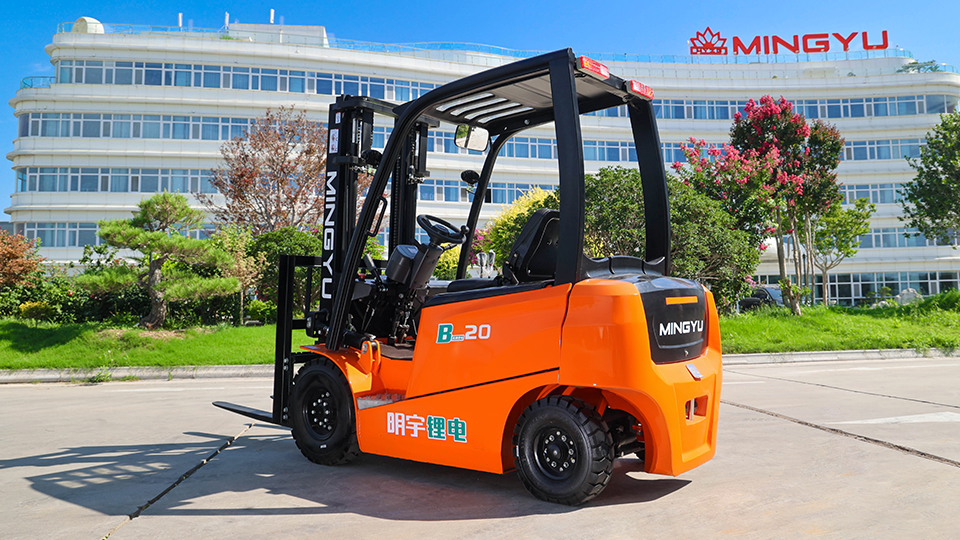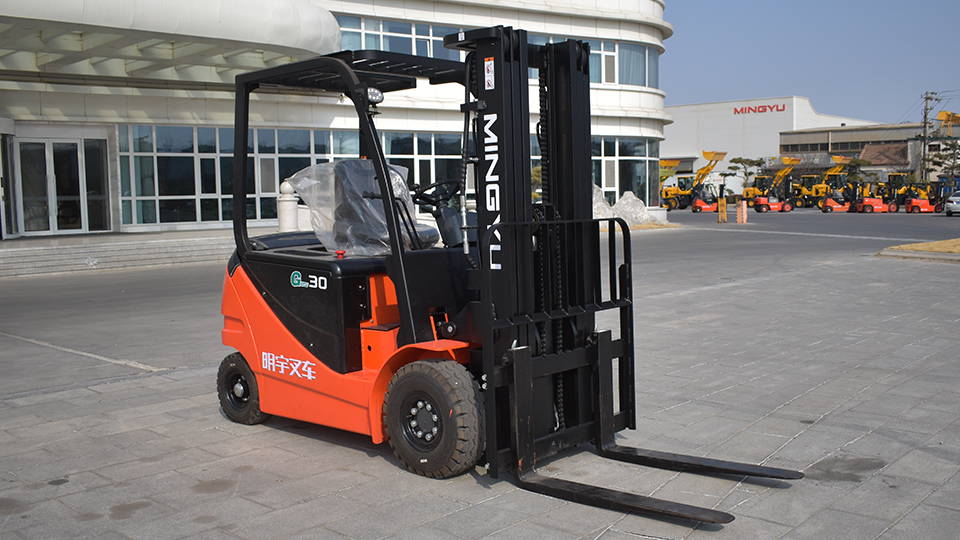
Abstract
Uline is a major distributor of shipping, industrial, and packaging materials, operating a vast network of warehouses across North America. The efficiency and success of their operations are heavily dependent on skilled warehouse personnel. A frequent question for those considering employment at Uline is whether prior forklift experience or certification is a prerequisite. This technical article provides a detailed analysis of Uline's hiring practices for warehouse roles, specifically addressing the necessity of forklift operation. We will examine the company's job descriptions, training programs, and the various career paths available within their warehouse and logistics divisions. We will demonstrate that while forklift operation is a core function for many warehouse positions at Uline, prior certification is not required, as the company provides extensive, in-house training to ensure all employees are equipped with the necessary skills and safety knowledge to operate their state-of-the-art equipment. This approach allows Uline to cultivate a consistent and high-quality workforce, emphasizing safety, efficiency, and long-term career growth.
1. Introduction: Uline's Business Model and Warehouse Operations
Uline’s business model is built on the rapid and accurate distribution of a massive catalog of products. Their warehouses are not just storage facilities; they are highly optimized logistical hubs designed for speed and precision. The sheer volume and variety of products, from small boxes to large-scale industrial equipment, necessitate a sophisticated material handling system. Central to this system is the use of forklifts and other powered industrial trucks. These machines are essential for:

Unloading Shipments: Receiving and safely moving incoming goods from suppliers off trailers and into the warehouse.
Stocking and Inventory Management: Transporting products to designated storage racks, often at significant heights.
Order Picking: Retrieving customer orders from shelves and preparing them for shipment.
Loading Outbound Trailers: Moving packaged orders from the staging area onto trucks for delivery.
Given these critical functions, it is clear that forklift operation is a foundational skill for many warehouse roles at Uline. The question, however, is whether an applicant must already possess this skill to be considered for a job.
2. The Forklift Operator Role at Uline: A Closer Look at Job Descriptions
A review of Uline's job postings for positions such as "Forklift Operator," "Warehouse Associate," and "Warehouse Order Picker" reveals a consistent and company-specific approach to qualifications. A common misconception is that a candidate must arrive with a pre-existing forklift certification. Uline's job descriptions, however, actively counter this notion.
Typical job descriptions for these roles will state:
"No forklift certification required – we'll train you and support your career growth."
"Get certified on multiple pieces of industrial equipment, such as a Forklift."
"Comfortable on warehouse equipment at heights up to 30 feet."
This messaging is a key part of Uline's hiring strategy. Instead of filtering candidates based on external certifications, they prioritize finding individuals with the right attitude, physical abilities, and a willingness to learn. The company seeks "go-getters" who are prepared for a fast-paced environment and are committed to safety and efficiency. The minimum requirements generally focus on:
A high school diploma or equivalent.
The ability to frequently lift packages weighing up to 50-70 lbs.
An aptitude for teamwork, attention to detail, and following instructions.
By providing the necessary training themselves, Uline ensures that every operator is trained to their exact standards and safety protocols. This standardization is a crucial element of their renowned safety record and operational consistency.
3. Uline's In-House Training Program: A Technical Deep Dive
Uline’s approach to forklift training is a significant investment in its workforce. It's a technical and practical program that goes beyond the basic requirements of a third-party certification. The training program typically includes several components:
Classroom Instruction: This phase covers the theoretical aspects of forklift operation. Topics include:
OSHA Regulations: A thorough overview of the Occupational Safety and Health Administration's standards for powered industrial trucks, including safety rules and best practices.
Forklift Anatomy and Function: Understanding the different parts of a forklift, such as the mast, forks, counterweight, and control mechanisms. This includes understanding the principle of the load center and stability triangle.

Pre-Operation Inspections: A detailed guide on how to perform daily safety checks to identify potential mechanical issues before starting work.
Warehouse Layout and Traffic Flow: Learning the specific layout of the Uline warehouse, including designated aisles, pedestrian walkways, and traffic rules.
Material Handling Best Practices: Training on how to properly handle different types of loads, including oversized, fragile, or unevenly weighted items.
Hands-on Training and Practical Evaluation: Following the classroom portion, new hires receive one-on-one, hands-on training with experienced instructors. This is where they learn to operate the specific models of forklifts used in the Uline facility, which may include sit-down counterbalanced trucks, reach trucks, order pickers, and turret trucks. The practical training covers:
Basic Maneuvering: Steering, accelerating, braking, and reversing in a controlled environment.
Lifting and Lowering: Safely raising and lowering loads to different heights, including the top-level racks.
Load Handling: Picking up and placing pallets and individual items with precision.
Navigating Obstacles: Safely navigating corners, narrow aisles, and other common warehouse challenges.
Simulated Work Scenarios: Practicing real-world tasks like unloading a truck or picking a customer order.
Final Certification and Licensing: Upon successful completion of both the classroom and practical training, the employee is certified to operate the equipment. This certification is an internal Uline credential, demonstrating that they have met the company's specific and rigorous safety and operational standards. This in-house certification is what allows Uline to have a highly standardized and safe workforce.
4. The Business and Safety Rationale Behind Uline's Training Model
Uline’s decision to provide its own training is a strategic business move with clear advantages:
Standardization and Quality Control: By training everyone in-house, Uline ensures that all employees operate equipment and follow procedures in the exact same way. This eliminates inconsistencies that could arise from different external training programs and ensures a unified, high-quality approach to material handling.
Safety First: The company's impressive safety record is a direct result of this commitment. In-house training allows them to focus on the unique hazards and best practices of their specific warehouse environments, equipment, and product types. This tailored approach to safety is far more effective than a generic, one-size-fits-all certification.
Talent Pool Expansion: By not requiring prior certification, Uline significantly broadens its pool of potential applicants. They can hire motivated and capable individuals who may not have had the opportunity to gain a certification elsewhere. This allows them to focus on hiring for attitude and work ethic, which are often more predictive of long-term success.
Employee Development and Retention: The investment in training shows a commitment to employee growth. This fosters a sense of loyalty and encourages employees to view their job as a career rather than just a stepping stone. Uline's commitment to career development is further underscored by the fact that many employees start in entry-level warehouse roles and advance into leadership or management positions.
5. Beyond the Forklift: Other Career Paths and Opportunities at Uline
While forklift operation is a central component of many Uline warehouse jobs, it is not the only path available. Uline's large-scale operations offer a wide range of career opportunities for individuals with different skill sets.
Non-Forklift Warehouse Roles: While many warehouse jobs involve forklifts, there are other positions that do not, such as:
Warehouse Custodian/Janitor: Responsible for maintaining the cleanliness and order of the warehouse facilities.
Shipping and Receiving Clerks: Focus on administrative tasks related to logistics and inventory, such as tracking shipments and processing paperwork.
Career Progression within the Warehouse: Uline is well-known for its promote-from-within culture. An entry-level Warehouse Associate who starts by learning to operate a forklift can progress to more senior roles such as:
Warehouse Team Lead: Overseeing a small group of employees, coordinating daily tasks, and providing guidance.
Warehouse Management Trainee: A structured program designed to train future leaders in all aspects of warehouse operations.
Warehouse Manager: Responsible for the overall management of a warehouse facility, including staffing, budgeting, and strategic planning.
Corporate and Other Divisions: For those who wish to transition out of the warehouse, Uline offers opportunities in a variety of corporate departments, including:
Sales and Customer Service: Utilizing product knowledge gained in the warehouse to assist customers.
IT and Business Systems: Working on the technology that powers Uline's complex logistics and e-commerce platforms.
Human Resources and Finance: Supporting the company's administrative functions.
6. Conclusion
In conclusion, the question "do you have to use a forklift to work at Uline?" is a complex one. The answer is yes, for many of the most popular and well-paying warehouse positions, forklift operation is a fundamental and daily responsibility. However, the more crucial and often misunderstood point is that you do not need to arrive with a pre-existing forklift certification. Uline's business model is built on a strong foundation of internal training and safety, which is why they explicitly state that they will train and certify their employees. This approach allows them to hire a broad range of talented individuals and equip them with the specific skills and knowledge needed to excel in their state-of-the-art warehouses. This commitment to in-house training not only ensures operational excellence and a stellar safety record but also provides employees with a clear pathway for career advancement, making Uline a compelling employer for those seeking long-term stability and growth in the logistics and distribution industry.
Name: selena
Mobile:+86-13176910558
Tel:+86-0535-2090977
Whatsapp:8613181602336
Email:vip@mingyuforklift.com
Add:Xiaqiu Town, Laizhou, Yantai City, Shandong Province, China